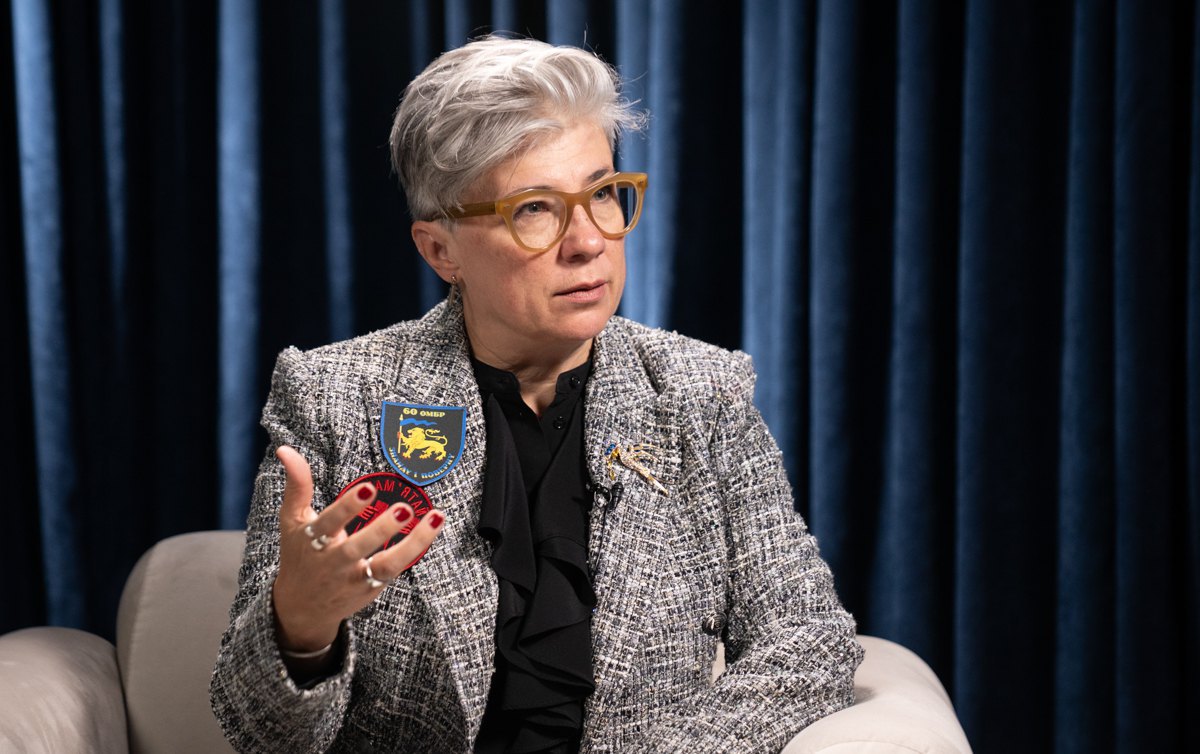
"I am looking for other things I can do in Ukraine because I want to stay."
You agreed to head the Canadian Embassy in Ukraine when the full-scale invasion had already begun. What motivated you: career development or personal history, given that you are Ukrainian by origin? What attracts or, conversely, repels foreigners from working in Ukraine and with Ukraine?
There are various reasons. I can start with personal ones. When I was asked to think about it, I immediately said, "Yes, I'm very interested." I didn't even ask my husband what he thought.
At the time, I was preparing for another job, a promotion, but I really wanted to return to Ukraine. Before that, I was here with my husband, working in technical support for our embassy. If I had the opportunity, of course I wanted to return. I missed Ukraine so much!
The war hurts everyone, and I believed that I could represent Canada as it should be represented. For me, it's not just professional, but also emotional — to create closer ties with people, to work more than the job requires. I believed I could do it.
The position was for one year. I was asked to stay for another year, and now I am in my third year here. I have already been told that it will be my last, unfortunately, but I am looking for other things I can do in Ukraine because I want to stay.
I would like to add that I am fortunate to have had two very good ambassadors before me: Roman Vashchuk and then Larysa Galadza. They are a great help to me, always ready to talk to me and very supportive. They also understand why it is good to have someone of Ukrainian origin in this position. This does not mean that someone who does not have Ukrainian roots would not be a good ambassador — of course not. I see how colleagues without Ukrainian origins work very well here, but I believed that we could continue in this vein.
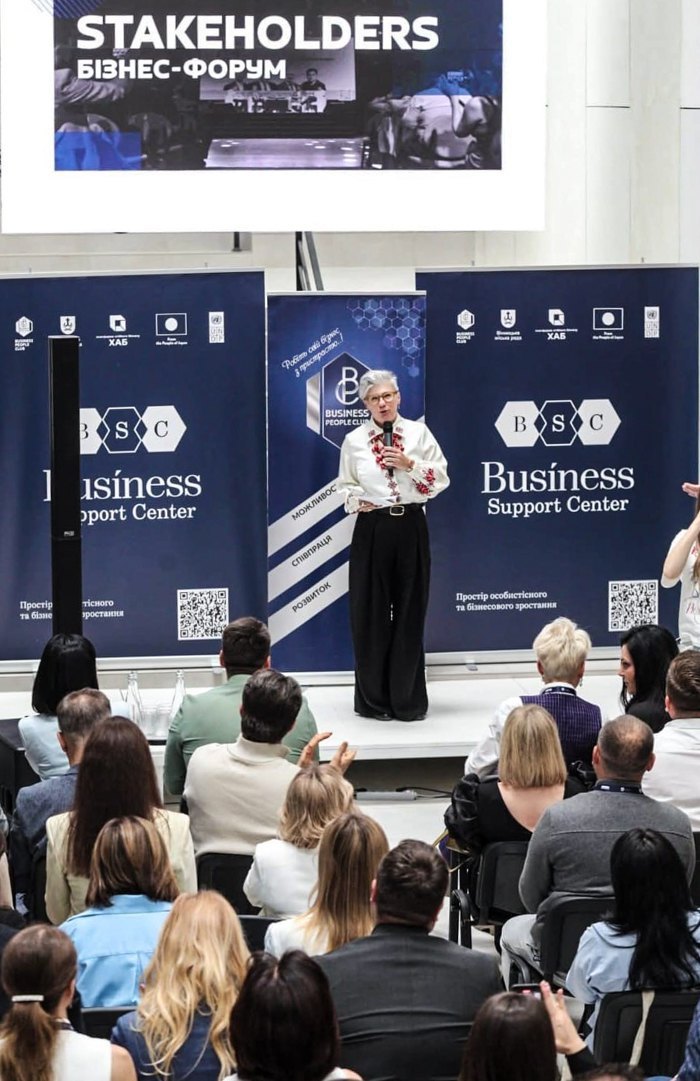
"Geopolitics is changing dramatically"
It seems that the global geopolitical order that emerged after World War II is coming to an end. Do you notice changes in international geopolitics? What are the new challenges and Ukraine's role?
Unfortunately, Ukraine is at the very centre of this change. But this is not the first time Ukraine has experienced this. Many events of the Second World War took place in Ukraine. There were many battles, and many people died here. We can go even further back in history. This is not new.
I think Ukraine has very good land and is very strategically located, but this also means that many want to seize Ukraine because it is very rich.
We see that geopolitics is changing a lot. We all believed that after World War II, if you were a democratic country, there were rules of the game that no one would break, but we see that this is not the case. We are all watching this.
As democratic countries, thanks to our values, we can make efforts to prevent this from happening. This is what Europe is doing now. The European Union is taking this on. I think they believed that the war would end sooner, but that did not happen. And now they are starting to move towards providing support to Ukraine, because Ukraine is Europe.
"In Canada, support for Ukraine is strong even outside the Ukrainian diaspora."
Could partners, particularly Canada, stop supporting Ukraine if they begin to notice a decline from democratic values?
Canada supports Ukraine primarily because we share similar values. And we believe that Ukrainians want to live in a democracy.
We see how various civil society organisations, the media and young people strive for democracy, and we want to support that. First and foremost, we support Ukrainians as people who are creating their own nation, their own democratic government and their own democratic community. We share the same values and see ourselves as brothers and sisters.
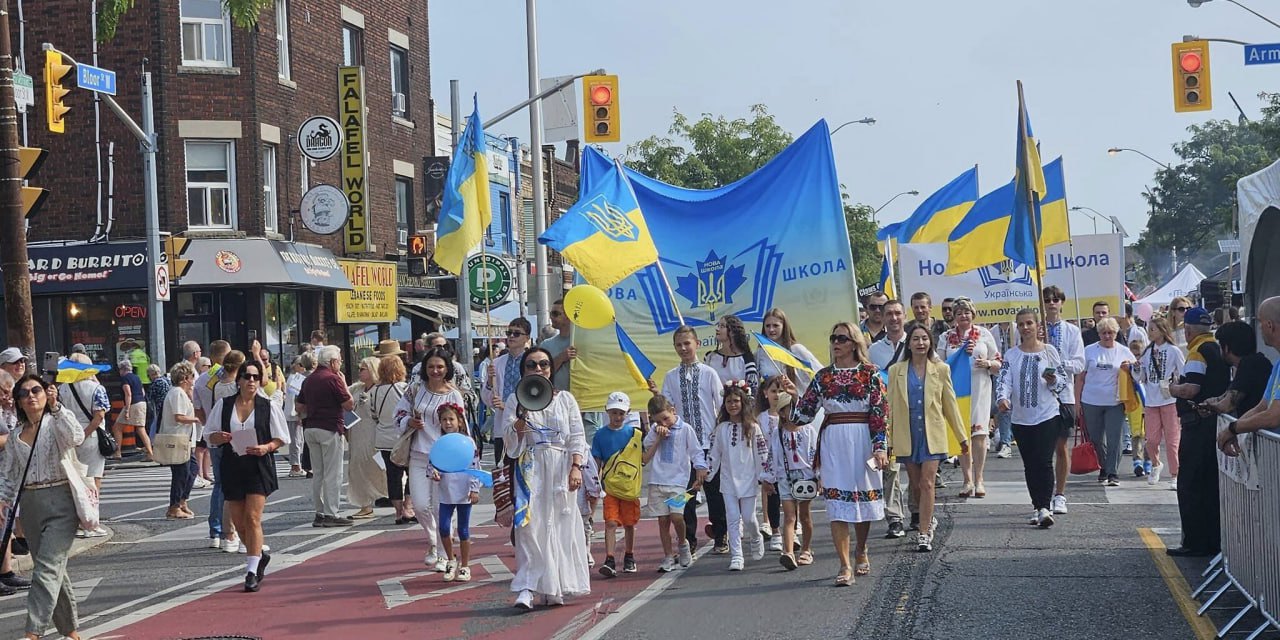
Of course, it helps that there are many citizens of Ukrainian descent in Canada. That is also important.
I think it's a very theoretical discussion about how this could change — I don't see it happening. I talk to people, and Ukrainians support their democracy and their values.
But let's play this game: if that started to change, I think the support would change as well.
This brings us to the topic of disinformation. Russia understands this well and hears it, which is why their disinformation targets values in order to scare people: whether it be corruption or something else. It doesn't work that way now, but it used to work, for example, that Russian speakers have no rights. People who don't understand Ukraine could believe that.
We must be extremely careful. Russia uses this very effectively for disinformation because it understands that support may diminish if these values change.
A recent sociological study in Canada showed that our support for Ukraine is strong even outside the Ukrainian diaspora. Canada supports Ukraine. This has not changed and will not change. The same applies to our political parties. Whoever our leader may be, they all support Ukraine. There may be some nuances, but Canada's support for Ukraine is quite solid.
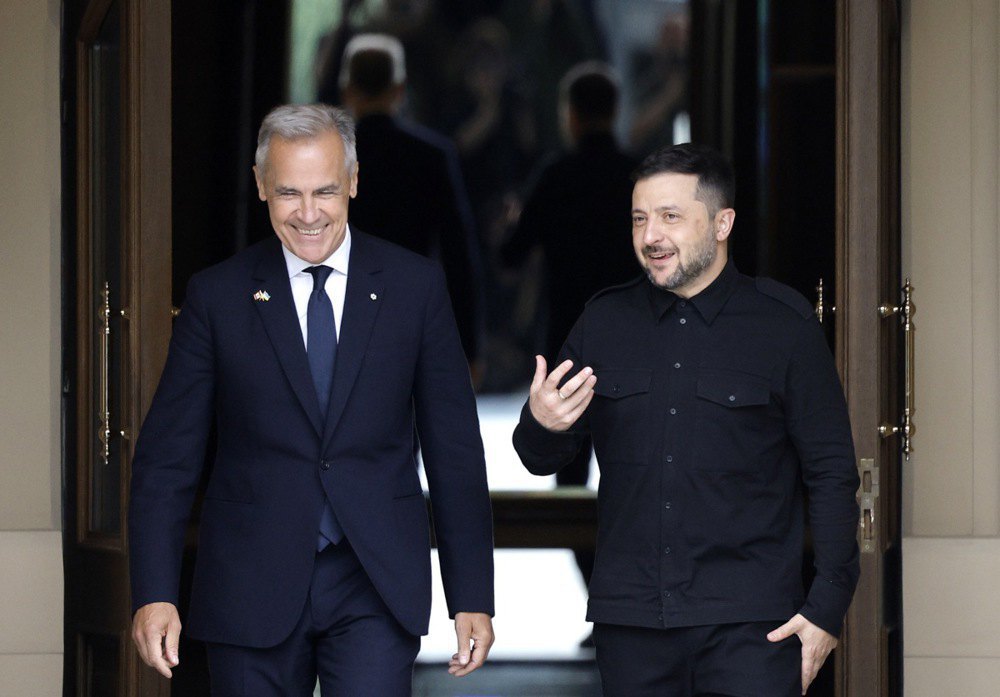
"Multiple citizenship is a very wise move by Ukraine."
How do you assess the introduction of multiple citizenship for Ukrainians? Will it contribute to Ukraine's recovery? Will it be relevant for the Canadian diaspora?
I think this is a very wise thing that Ukraine has done. It allows Ukrainians to move around quite freely and will promote trade, the development of economic relations and business.
The world is changing, becoming global. More and more people have two or even more citizenships. I was joking, but maybe it's not a joke: even for me personally, it would be interesting to have dual citizenship with Ukraine.
We'll see how it goes, but I think it will help both Ukraine and Canada if people can have dual [citizenship] and don't have to choose one or the other.
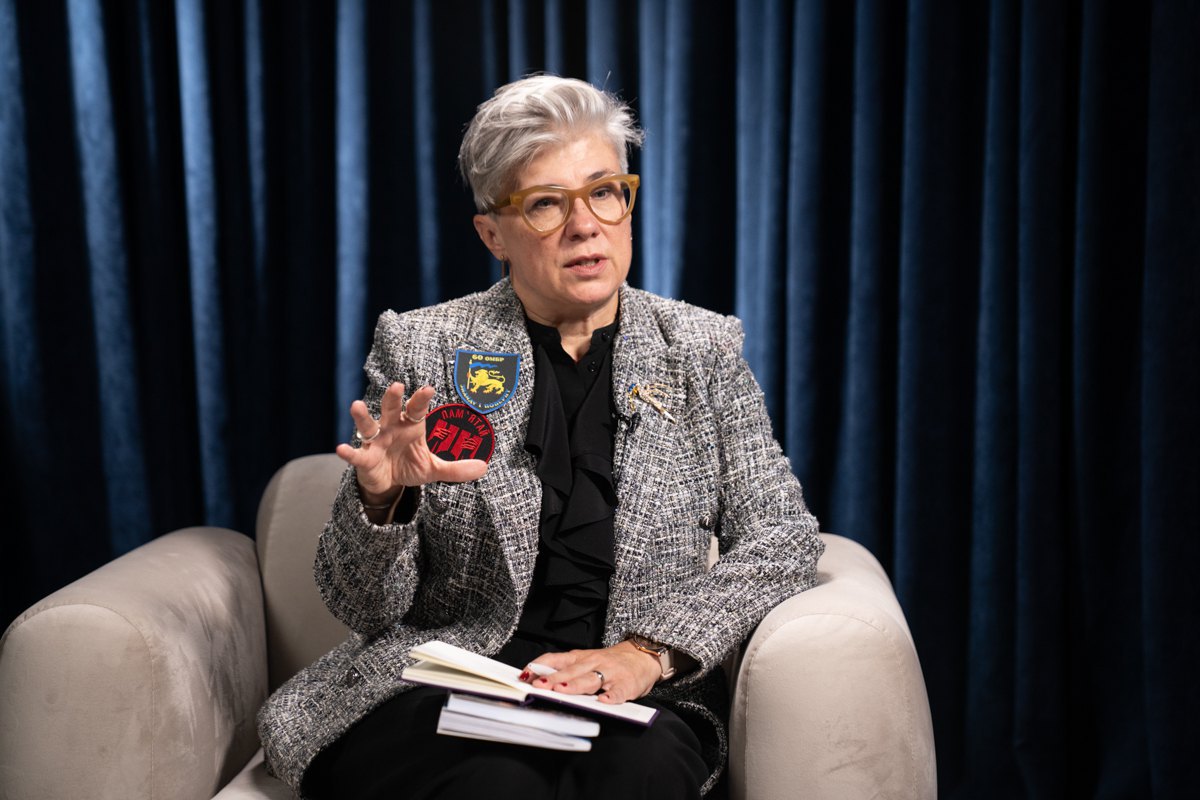
"In our army, women and men have the same opportunities."
Among the many humanitarian projects you support, there are some very humanistic initiatives, such as mental health support for Ukrainian women whose children have died in the war. Why is it important to get involved in such projects? What role do you see for diplomatic missions in this?
The Book of Emotions was presented — a Red Cross project that published poems written by mothers and daughters of those who are either in captivity, died in the war, or are missing in action. It was a very emotional meeting because they read their poems. I have already read this book three times, and it weighs heavily on my heart.
I think it is very important to create a community with them. I met with several mothers whose children were killed by Russia in the war. They said that people do not know how to talk to them, or do not want to, or are afraid for various reasons. I thought that this could not be the case. They need someone to talk to, so I started inviting them to lunch. I have already invited this group [of women whose poems are published in The Book of Emotions] and they will come to me in October and we will continue.
Many of them are becoming very active. Many people are afraid that they will become negative, but it doesn’t happen. They are becoming very strong, like mother of Juice (Liliya Averyanova, mother of Ukrainian hero, pilot Andriy (Juice) Pilshchikov. — Ed.).
Thanks to the Canadian organisation Maple Hope Foundation, we have the Heal a Mother's Heart project, where women can receive psychological and social support. Some decide to go back to university and become psychologists themselves to help others. This gives them new goals in life and a way to keep their kids' memories alive. Then other mums want to talk to them because they understand each other. You don't want to talk to someone who hasn't been through what you've been through.
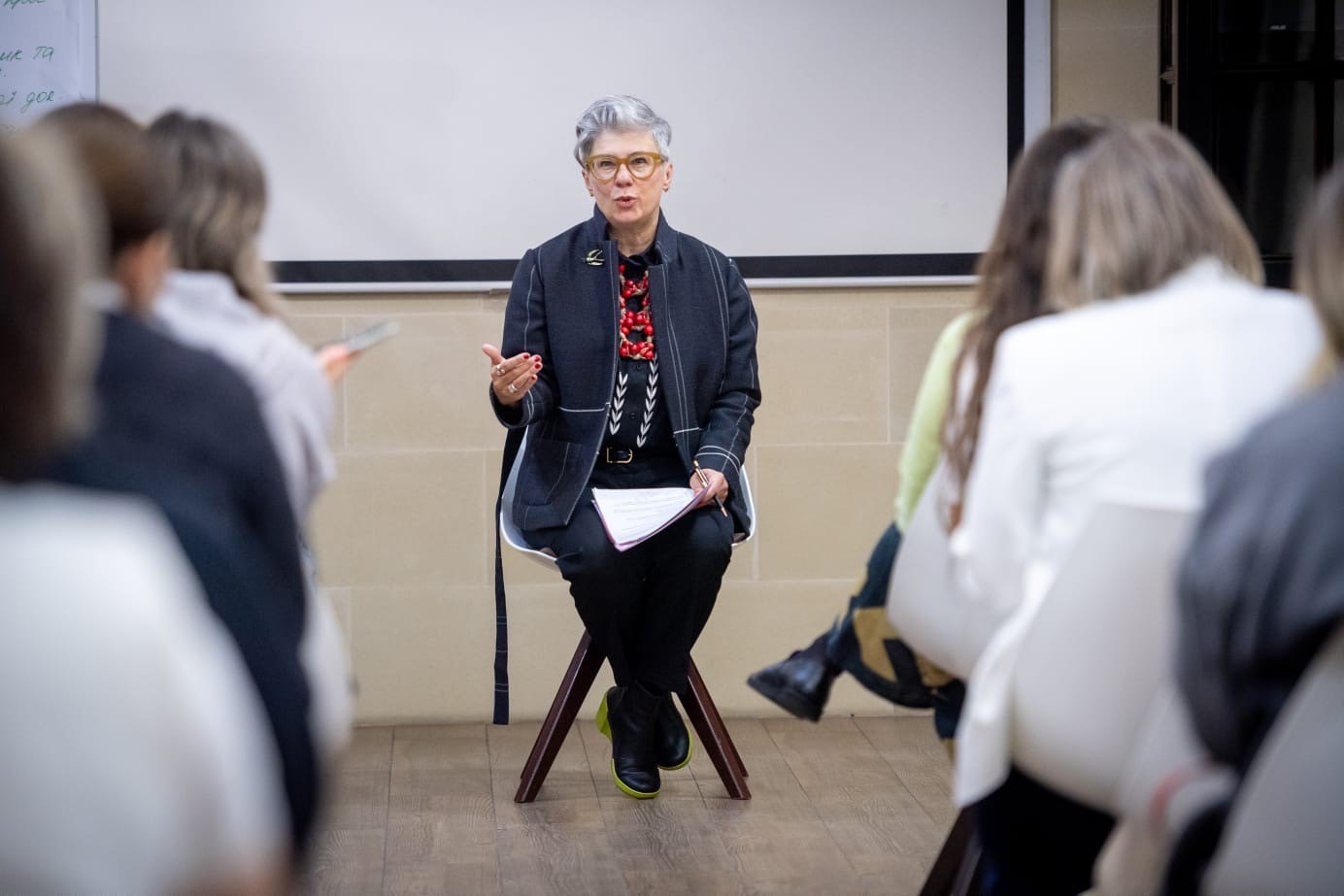
These women are very strong. Many of them are my age. That's the second reason. I have a son who will turn 26 this month and a daughter who is 23, so I can imagine how it would feel to me. It's a human reason, nothing else.
You have many initiatives focused on developing women's leadership. At one point, the Russians tried to spread disinformation, claiming that Canada was calling on Ukrainian women to go to the front lines to clear mines. Can you comment and explain what Canada's position on the role of women in war really is?
We as Canada don't even need to have such a position, because Ukrainian women themselves are joining the Armed Forces, they themselves are becoming sappers, they themselves are fighting for this. And we as Canada support them, because in our military, women and men have the same opportunities. As you know, the highest-ranking officer in our military is a woman — General Jennie Carignan. And she was a sapper.
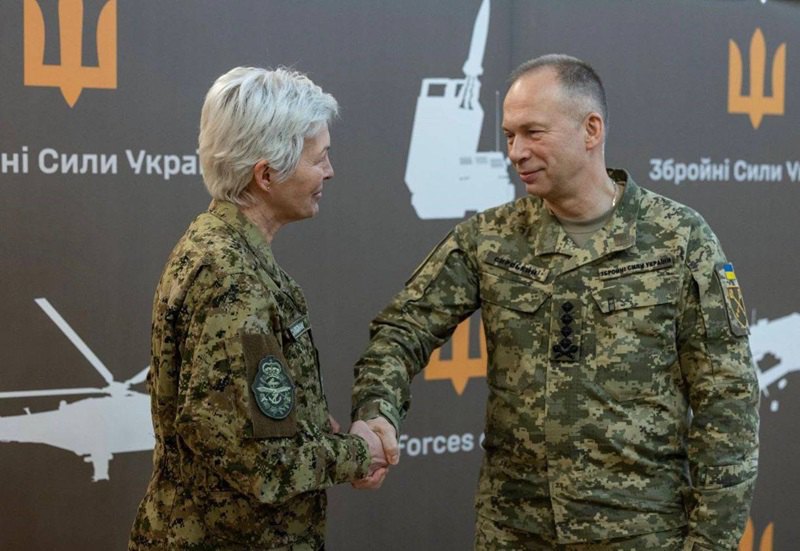
She visited Ukraine last summer. When they showed her a mine and wanted to explain what it was, she said that she was a sapper and knew that already. It was difficult for them [the Ukrainian side] to accept that a woman was really a sapper.
I have met female deminers, and making any distinction between male and female deminers is a waste of energy. I think we should already accept that it is not about whether someone is a man or a woman, but whether they have the ability and temper for the job.
On the same day when two employees of the Danish Refugee Council's humanitarian demining mission were killed in a Russian strike (a strike on an area near Chernihiv on 4 September — Ed.), our embassy visited a project run by another humanitarian demining organisation. The presentation was given by a 21-year-old female deminer. She has been working in this field since she was 19. What she has already done and seen is real, and she is professional. She did not talk about being a woman, but about what is needed in her work, why she was chosen, why she had such a career and will probably continue it. This is a wonderful example. I believe that we can now stop the discussion about whether it should be a woman or a man; the focus should be on supporting those who are capable of doing a particular job.
How can we organise the participation of hundreds of thousands of Ukrainians in Canada in the post-war elections? Do you see a willingness to maximise the participation of Ukrainians in Canada in the post-war elections?
I am not an expert in this field, but if you look at our history, Canada is one of the countries that has always supported elections in Ukraine. In 2015, about 500 Canadians came to Ukraine as election observers. This shows that the Canadian government understands that Canadians really want to support Ukraine and that this is a way for them to actively do so.
As for the participation of Ukrainians in Canada in the elections, that is an interesting question. I cannot assess it, I do not know how it can be organised, because it is very difficult to do.
As for motivation, yes, I think Canada will stand with Ukraine and try to figure out how to make this happen.
I think that only those Ukrainians who have arrived officially will vote. It becomes very difficult when it comes to Ukrainians who are in Canada or other countries illegally. This is a challenge for Ukraine. At the same time, I don't think they will go to the polls.
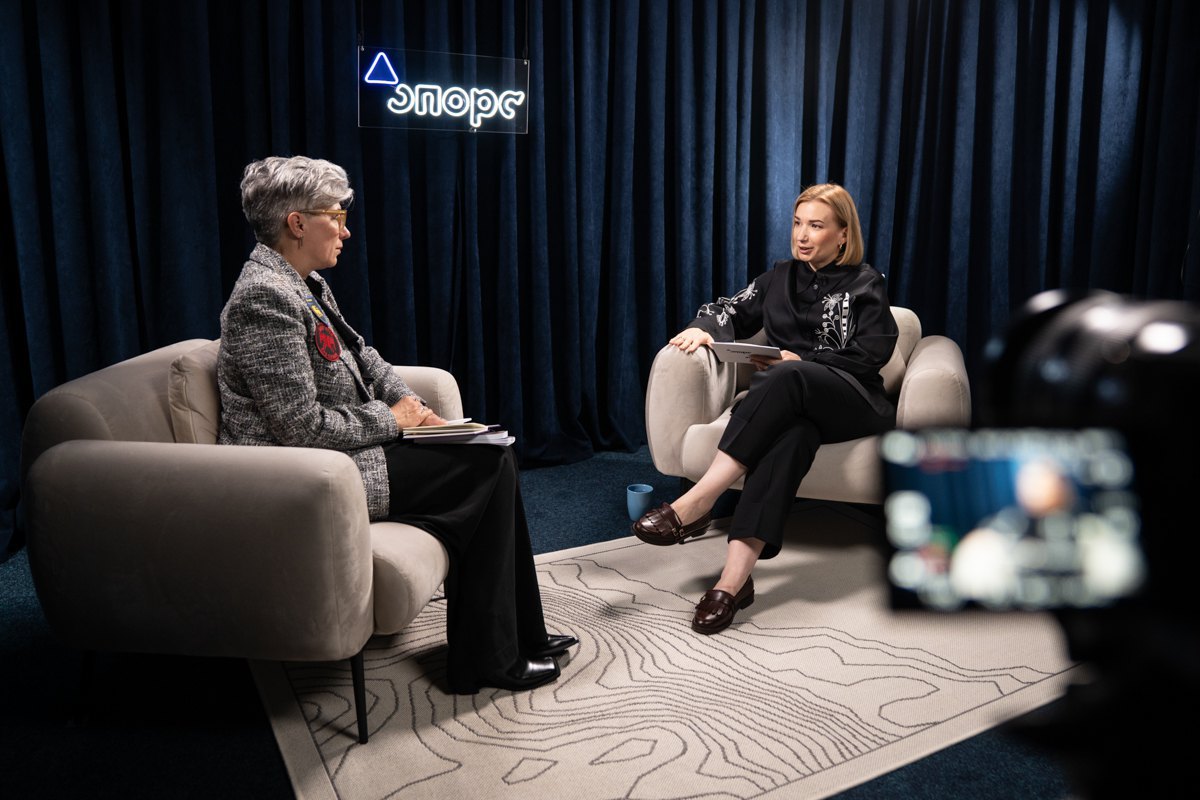
Is there any factor that could cool relations and force Canada to reduce its support for Ukraine?
I don't see any such factor. Canadians are already prepared to help rebuild Ukraine in various areas. Relations between different businesses are becoming much stronger. Agreements are even being signed — for example, between the province of Alberta and Ukraine, or between Alberta and the Kherson Region.
If people start investing more, they will not lose interest; on the contrary, they will be more focused and mobilised to support Ukraine.
Can Canada set a precedent for the confiscation of frozen Russian assets?
Yes, Canada is already setting a precedent. A court case is currently underway to confiscate assets that Canada has frozen. At the moment, the other side has time to appeal. There are not many Russian assets in Canada because Russians have not invested as much here as in other countries, but I think the precedent has been set and it will be significant for others.
We have also been quite active in various groups discussing this issue, whether through the G7 or the Ukrainian Peace Formula group.
We are very actively helping to study legal issues for a better understanding of these processes.
There is a lot of work on the topic of reparations, and these discussions are very active now. We all understand that the frozen money will not be returned until Russia pays reparations.
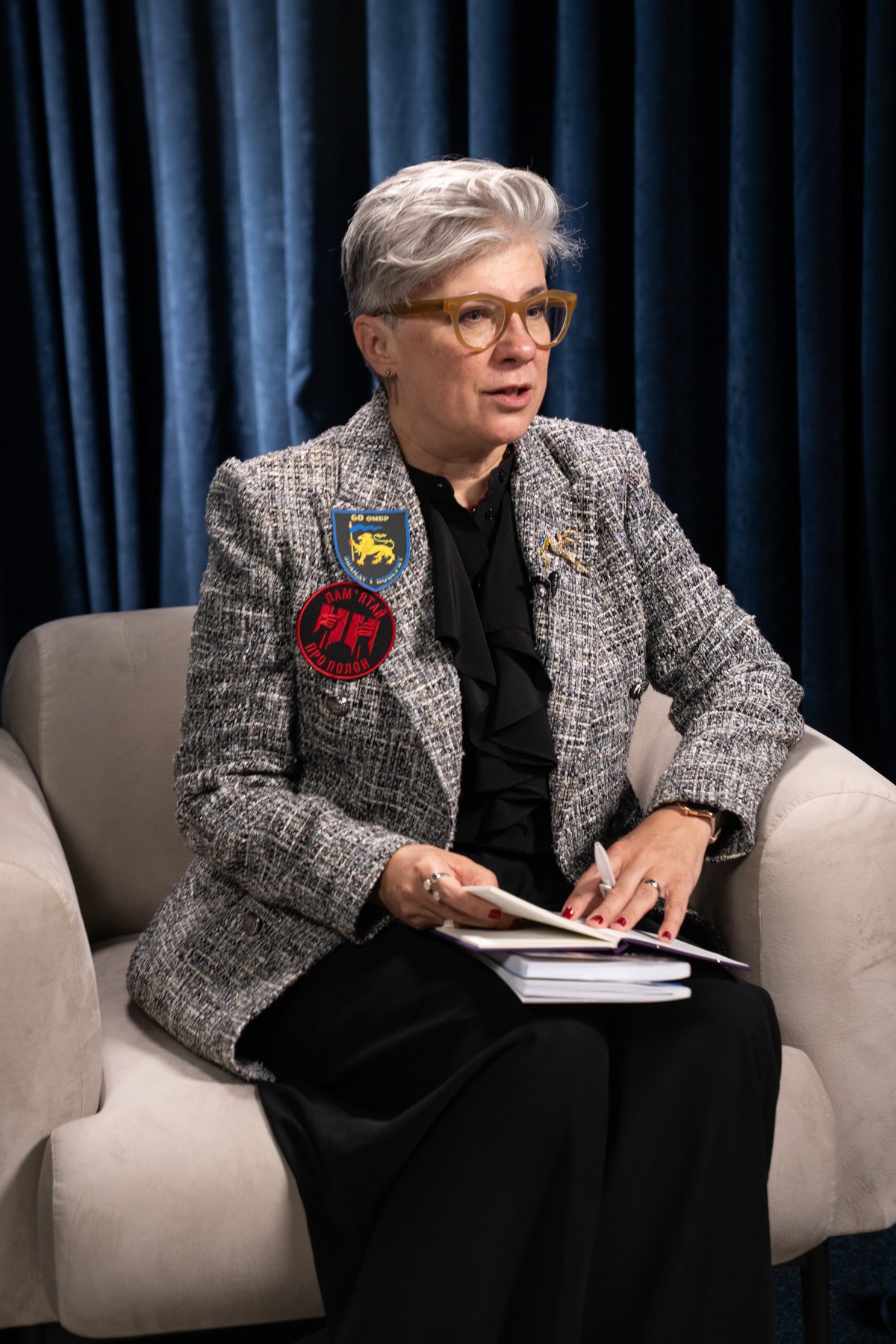
"Since 2022, Canada has invested 22 billion Canadian dollars in aid to Ukraine."
How much has Canada already spent on aid to Ukraine during the full-scale invasion? How do you choose your priorities?
Canada has already invested 22 billion Canadian dollars in aid to Ukraine since the start of the full-scale war.
We were the first country to provide macro-financial assistance so that Ukraine could continue to pay pensions, salaries in the public sector, and so on. We understood that Ukraine needed to direct money to support the military.
We also immediately began humanitarian funding. Much of our support goes through the UN because it requires coordination. We believe that this must be done together, and the UN provides local support to communities.
Support for the army and demining is important. We support Ukraine in various areas, including culture. I will give the example of support for the Holodomor Museum in Kyiv. We understand that Russia does not recognise the Holodomor as genocide, and it is very important to support this process culturally in order to build institutions and continue research.
How many Ukrainian soldiers has Canada trained, and what is it learning from Ukraine?
Since 2015, Canada has trained 46,000 Ukrainian soldiers as part of the UNIFIER training mission.
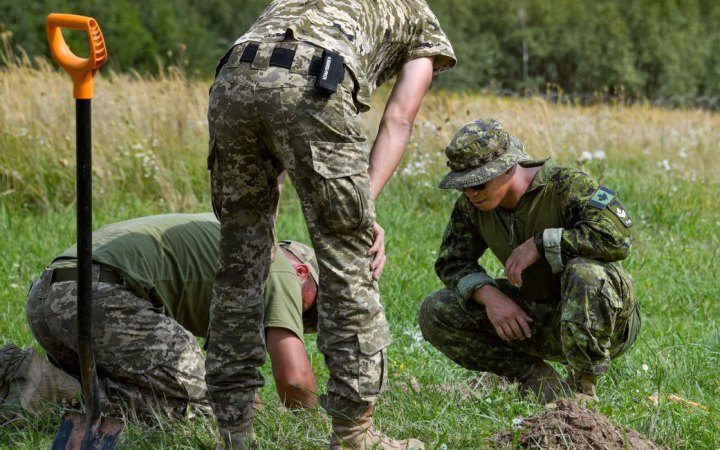
We are now working with Ukraine to understand what our next step should be. We see that Ukraine now has the most modern military, and we are also learning from Ukraine at this moment.
What kind of military cooperation with Ukraine might be of interest to Canada?
I think the answer is drones. This is a large sector. We have signed several agreements with Ukraine on cooperation in the production of drones. We have also joined the Danish model (financing of purchases by Ukrainian defence companies by the Danish government and other countries — Ed.) for drones, because we know from Ukraine that Canada has several technologies, particularly in optics, that will help Ukraine.
We want to conduct more research with Ukraine on marine drones, because Canada has access to three oceans, so we have to protect our borders. What Ukraine has achieved in the Black Sea is truly incredible. A country that does not have a large fleet has everything under control there.
How can economic cooperation between Ukraine and Canada be strengthened?
Chrystya Freeland has become the Canadian Prime Minister's Special Representative for the Reconstruction of Ukraine. We are talking about business so that more investments are made in Ukraine. We really need to think about the challenges Canadians face in investing. We have a good free trade agreement with Ukraine, which was modernised a year ago. We understand that there are some challenges. And I think Ms Freeland will make great strides in that regard.
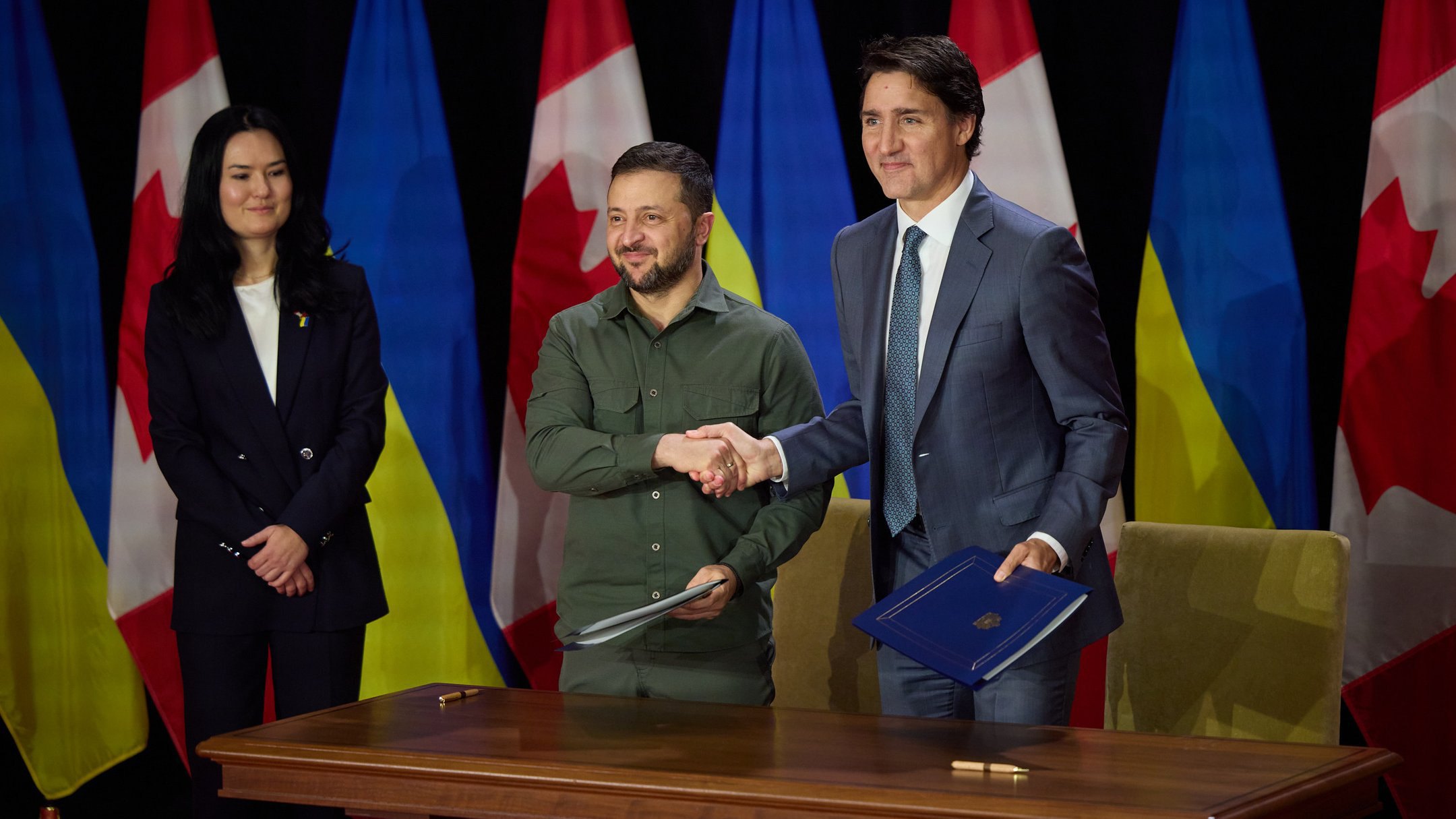
There will be various conferences where they will discuss what specifically is needed to invest in Ukraine. A conference will be held in Toronto on 3 December, and Rebuild Ukraine will be held in Warsaw in November. I met with Minister Hrynchuk (Minister of Energy of Ukraine Svitlana Hrynchuk — Ed.) two weeks ago and I know that she is going to Canada. We are preparing to really understand in which areas cooperation is possible. We are talking about gas infrastructure, gas storage facilities, turbines, gas pipes.
There are many areas where there is still potential for cooperation between our countries, and I believe that this will now begin to translate into projects.
"There is a sense of Ukraine's revival as a modern culture that is different from Russia's."
Your perspective on Ukraine as a diplomat of Ukrainian origin is interesting. Do you notice any transformations in the identity of Ukrainians, any overcoming of the consequences of the colonial past? In particular, when compared to your first term in Ukraine?
I think that now is truly a time of revival for Ukrainian culture and identity — a post-colonial time. Yes, we have seen this in other cultures, but now I see it in Ukraine.
Many contemporary poems have been written that I would like to translate. The films that are now being released in Ukraine are really interesting. People stand in line at our festivals — everyone wants to watch Ukrainian films and wear Ukrainian designs. You can really feel the revival of Ukraine as a modern culture that is different from Russia. I think Ukraine and Ukrainians can be very proud of that.
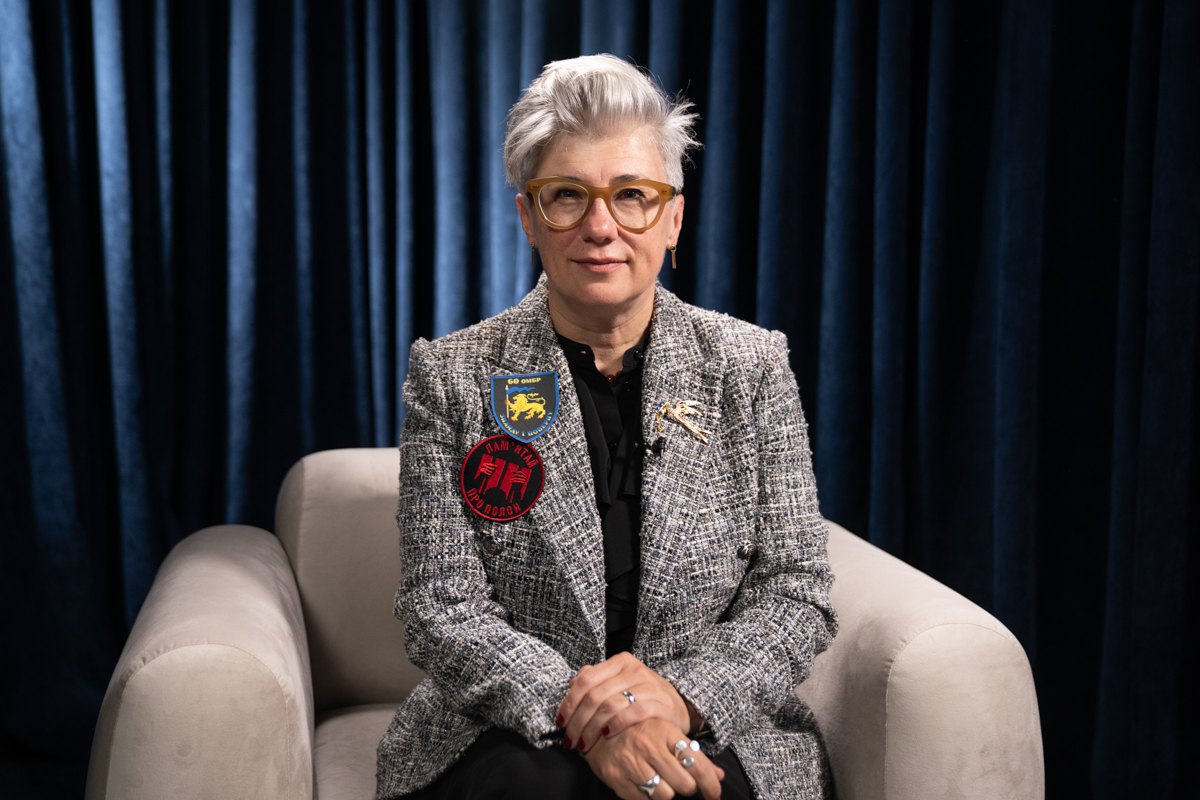
The last time I was in Ukraine, Yanukovych was still president, and it was a completely different time. But I can say that when I travelled to Crimea, Donetsk, and Luhansk and met with people, they understood me when I spoke Ukrainian. The idea that only Russian speakers live there is not true. It wasn't true then, and it's not true now. I don't think people in these regions are that different, but people in some parts of Ukraine were ashamed to admit that they were Ukrainian.
I am interested to see how in countries such as Canada and others, many people are suddenly acknowledging their Ukrainian heritage. Now they feel free and proud to say that they have Ukrainian roots. They want to know more.
The influence of Russian propaganda and disinformation was very strong in Canada and other countries, and now, I think, people are waking up. Universities and professors have to rethink what they have always said in lectures in order to understand what might be correct.
More and more Ukrainian studies programmes are opening across Canada. For example, a Ukrainian language programme has started in Newfoundland. We used to have such programmes in Toronto, Edmonton and Winnipeg, and we worried whether there would be enough students. That has changed. My son, who does not speak Ukrainian, is taking a Ukrainian language course at university because he wanted to. So the situation is changing, and it's great to see.








